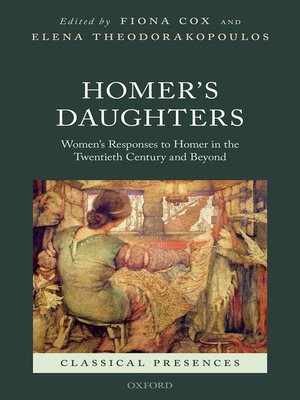Homer's Daughters
ebook ∣ Women's Responses to Homer in the Twentieth Century and Beyond · Classical Presences
By Fiona Cox

Sign up to save your library
With an OverDrive account, you can save your favorite libraries for at-a-glance information about availability. Find out more about OverDrive accounts.
Find this title in Libby, the library reading app by OverDrive.



Search for a digital library with this title
Title found at these libraries:
| Library Name | Distance |
|---|---|
| Loading... |
This collection of essays examines the various ways in which the Homeric epics have been responded to, reworked, and rewritten by women writers of the twentieth and early twenty-first centuries. Beginning in 1914 with the First World War, it charts this understudied strand of the history of Homeric reception over the subsequent century up to the present day, analysing the extraordinary responses both to the Odyssey and to the Iliad by women from around the world. The backgrounds of these authors and the genres they employ - memoir, poetry, children's literature, rap, novels - testify not only to the plasticity of Homeric epic, but also to the widening social classes to whom Homer appeals, and it is unsurprising to see the myriad ways in which women writers across the globe have played their part in the story of Homer's afterlife. From surrealism to successive waves of feminism to creative futures, Homer's footprint can be seen in a multitude of different literary and political movements, and the essays in this volume bring an array of critical approaches to bear on the work of authors ranging from H.D. and Simone Weil to Christa Wolf, Margaret Atwood, and Kate Tempest. Students and scholars of not only classics, but also translation studies, comparative literature, and women's writing will find much to interest them, while the volume's concluding reflections by Emily Wilson on her new translation of the Odyssey are an apt reminder to all of just how open a text can be, and of how great a difference can be made by a woman's voice.







